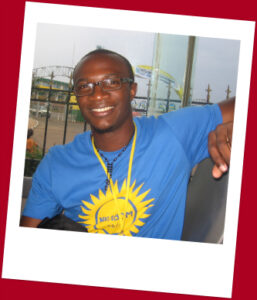“Sports have established peace in Jamaica’s inner-city communities.”
July 24This week governments will meet in London to consider how sport can contribute to advancing vital development goals. The 6th Commonwealth Sports Ministers Meeting will review how all types of games can address social and economic challenges and promote global public health.
But why is sport so important for national development? According to Craig Dixon, 24, a Commonwealth Correspondent from Jamaica, it can empower individuals, promote reconciliation and lead to community and economic development.
I distinctly remember that there was a noticeable decrease in crime rates during the Reggae Boyz’ exploits in France, in the 1998 FIFA World Cup. The miscreants were watching football.
There is no doubt that sport can be used as a source for unity; reconciliation; raising awareness for social issues; youth empowerment, community and economic development and even to spur academic excellence.
Regarding national unity, Rwanda’s ‘Sports for Peace and Reconciliation’ programme was vital in its post genocide recovery. And there are abiding stories of the integral role that Ivory Coast’s national football team has played in reducing some of that country’s outbursts of violence.
Zimbabwe’s ‘Youth Education through Sports’ programme is used to provide information on HIV/AIDS and related illnesses. More than 25,000 youths have been reached since 2000.
Sports have been used to establish peace in many of Jamaica’s volatile and crime-riddled inner-city communities. Indeed many of Jamaica’s globally lauded sporting heroes are from economically deprived families and communities. It is an avenue for academic advancement and vertical social mobility.
Sports related activities accounted for more that 2% of Jamaica’s GDP in 2006/07 and 2% of jobs. They are a means of systematically reducing poverty; building peace; mitigating conflicts; promoting healthy lifestyles; inspiring national pride and self confidence; developing infrastructure and creating wealth within communities.
…………………………………………………………………………………………………………………
About me:
“I am a Jamaican social activist, ‘Dreamrighter’, transformational speaker, creator of the D.R.E.A.M.R.I.G.H.T acrostic, and two time nominee for the Prime Minister’s Youth Award for Excellence in Service.
“I grew up in a small bucolic village called Pell River, in western Jamaica. I have been to many mountain tops – seen many things, tasted many things, conquered many things.
“I studied public relations and history at the University of the West Indies, Mona. I am an intern at the moment in the Spice Isle, Grenada, working the Roving Caregivers Programme which provides early childhood stimulation for economically deprived infants and toddlers. I want to be an anthropologist, focusing on literacy, peace and reconciliation.”
Contact me at dreamrightmotivation@gmail.com
…………………………………………………………………………………………………………………
Opinions expressed in this article are those of the author and do not necessarily represent the views of the Commonwealth Youth Programme. Articles are published in a spirit of dialogue, respect and understanding. If you disagree, why not submit a response?
To learn more about becoming a Commonwealth Correspondent please visit: http://www.yourcommonwealth.org/submit-articles/commonwealthcorrespondents/
…………………………………………………………………………………………………………………




